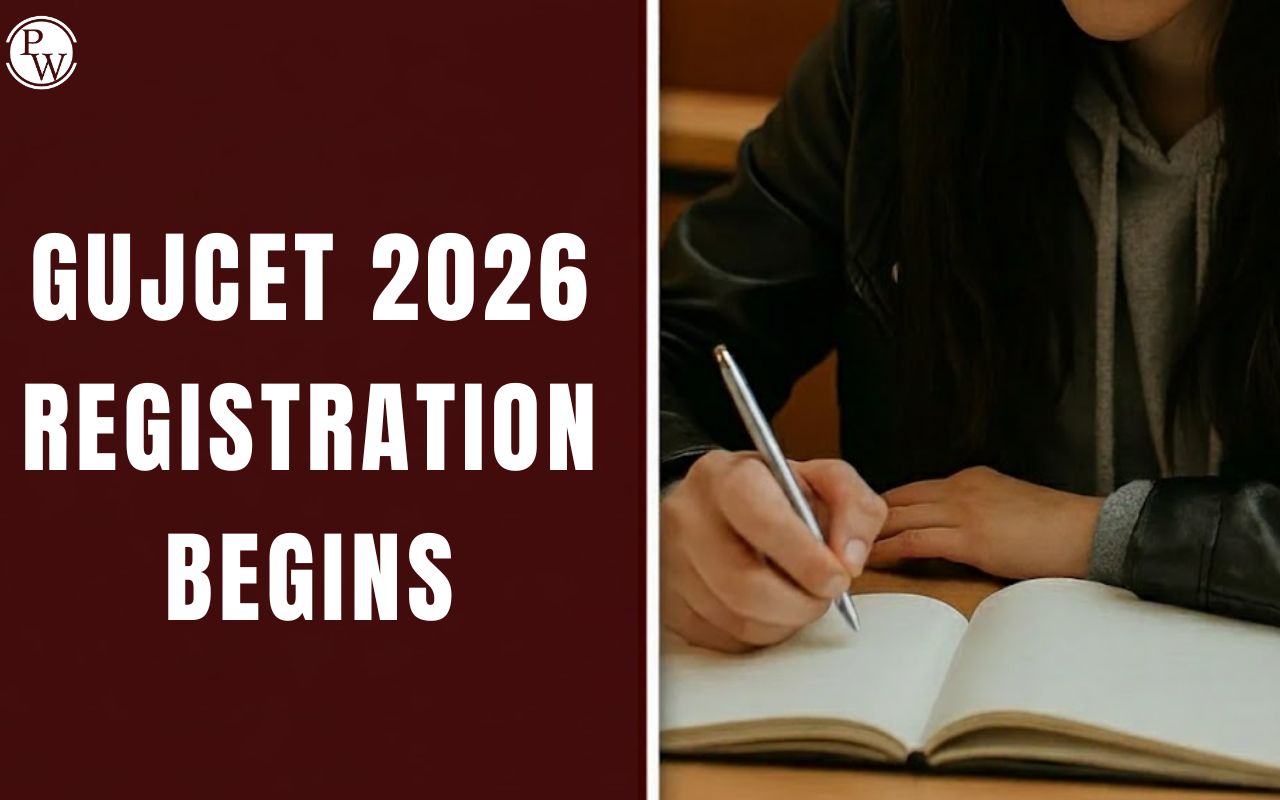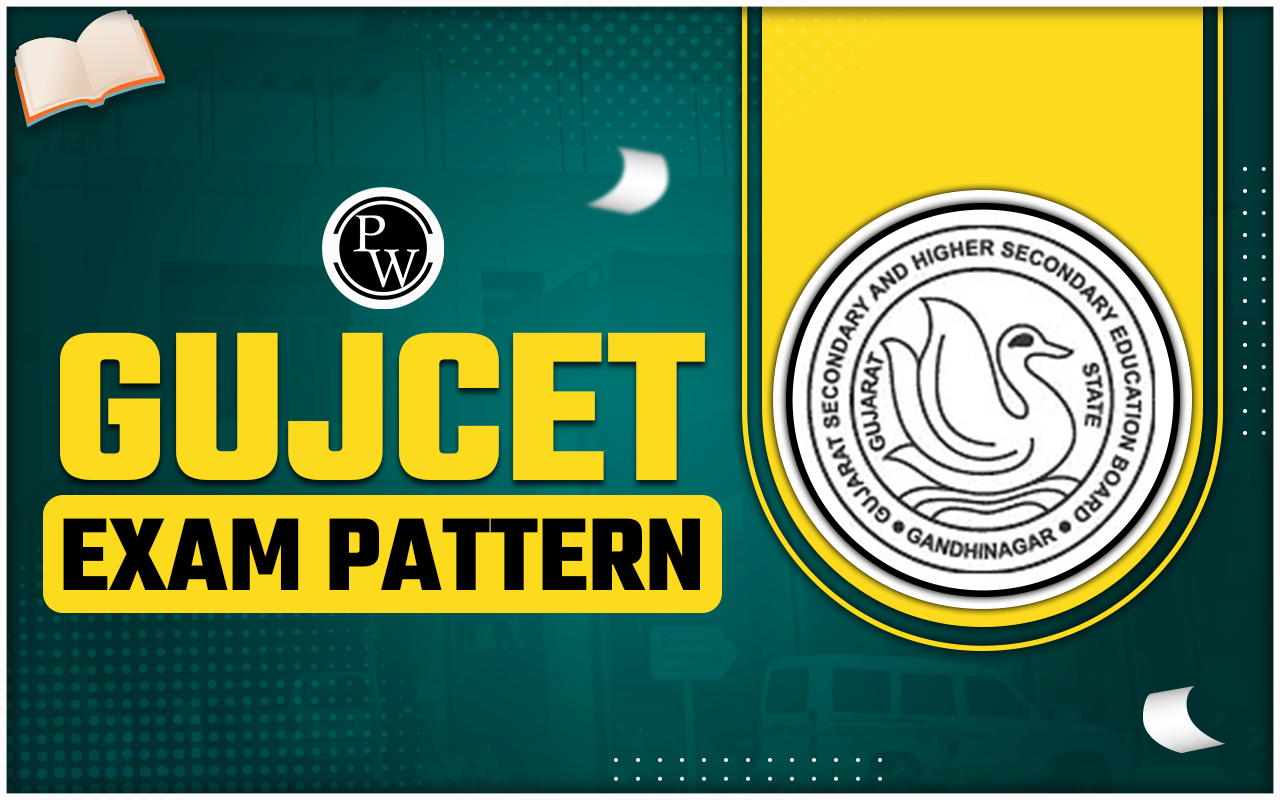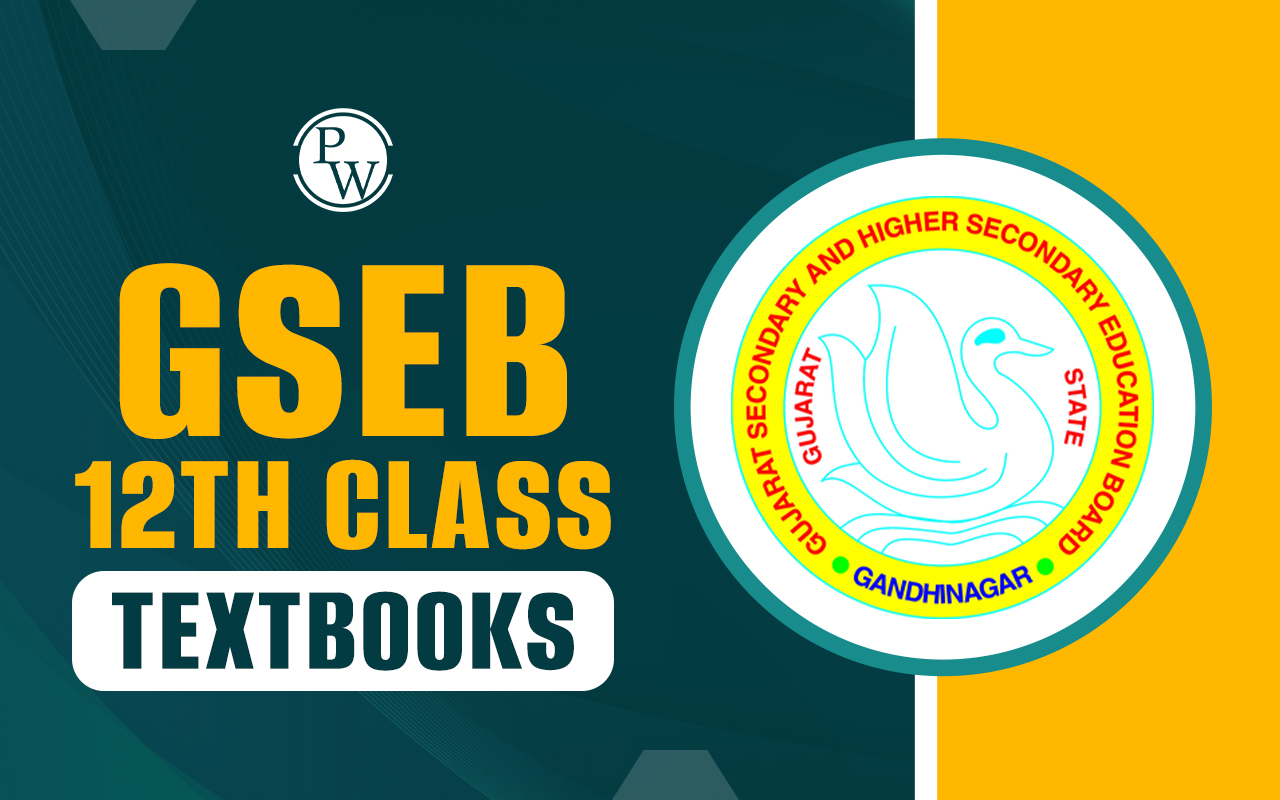
GUJCET vs JEE: The candidates who are confused between the exam details of the GUJCET and JEE Mains can go through the details of the comparison for the two examinations. The candidates can get the details of GUJCET vs JEE Difficulty Level, Exam Pattern, and differences in the syllabus. The JEE Mains is a national-level examination and the GUJCET is a state-level examination conducted by the State CET Cell of Gujarat.
The candidates who appear in the JEE Mains will be able to be admitted to IIT, NIT, and GFTIs for B.Tech courses and GUJCET offers seats in the universities situated in Gujarat. These are the major differences between GUJCET vs JEE, more details for these two examinations are mentioned further in this article.How to Prepare for GUJCET from Class 11
GUJCET vs JEE
It is believed that the GUJCET vs JEE Main entrance tests are of equal difficulty. Candidates should be aware, that GUJCET can be passed by preparing for JEE Main, as the majority of the questions will be drawn from the state board syllabus of Gujarat. However, GUJCET preparation alone cannot crack JEE Main. JEE Main questions will be more conceptual, preparation is essential. Candidates preparing to take admission for B.Tech courses in reputed universities can go through the details of GUJCET vs JEE.GUJCET vs JEE Difficulty Level
The GUJCET vs JEE Difficulty Level has been mentioned in the table given below and other differences between the two examinations. The candidates can go through the details of the nature of the questions, the level of examination, and the difficulty level.| GUJCET vs JEE Difficulty Level | ||
| Particulars | GUJCET | JEE |
| Level of Examination | State Level | National Level |
| Nature of the Examination | Formula Substitution Type Questions | Conceptual Questions |
| Number of Questions | 150 Questions | 120 Questions |
| Duration of the Exam | 3 Hours | 3 Hours |
| Speed and Accuracy | Speed | Accuracy |
| Level of Difficulty | There will be many more questions to answer in three hours than in JEE Main, and the questions will be based on the state board syllabus. It is supposed to have the same degree of difficulty as JEE Main. | The level of difficulty will be high because the questions will be more conceptual and based on NCERT texts. |
GUJCET vs JEE Exam Pattern
The candidates can go through the details of the GUJCET vs JEE Exam Pattern from the table given below. The MHT Exam Pattern and JEE Exam Pattern are slightly different. It is important to understand the exam pattern which is the structure of the examination.| GUJCET vs JEE Exam Pattern | ||
| Particulars | GUJCET | JEE |
| Exam Mode | Computer Based Test | Computer Based Test |
| Duration of the Exam | 3 Hours | 3 Hours |
| Medium of the Exam | Englis/Hindi/Gujrati | English, Hindi, Assamese, Bengali, Tamil, Telugu, Urdu, Gujarati, Kannada, Malayalam, Odia, Punjabi, and Marathi. |
| Sections | Physics, Chemistry, Mathematics | Physics, Chemistry, Mathematics |
| Total Number of Questions | 120 | 75 |
| Types of Questions | Multiple Choise Questions | Multiple Choise Questions |
| Marking Scheme | 1 mark for each subject | 4 marks for every correct answer |
| Negative Marks | 0.25 | 1 mark for every wrong MCQ |
GUJCET vs JEE Syllabus
The GUJCET Syllabus is curated from the Gujarat Board Exam Syllabus for Class 11 and 12, and individuals applying for the test will also be subject to the topic reduction. But even after CBSE reduced its syllabus, NTA did not remove any topics from JEE Main. In addition to studying from NCERT textbooks for the national-level JEE Main test, aspirants may also take the GUJCET. Candidates can check the GUJCET vs JEE Syllabus from the table given below which are included in JEE but are omitted from GUJCET.| GUJCET vs JEE Syllabus | |
| Subject | Topics |
| Mathematics | Properties of Determinants Area of Triangle Family of Lines Condition of Tangency Solution of Quadratic Equations in Complex Number Systems Arithmetic and Geometric Progressions Sum up to n terms of Arithmetic and Geometric Uniqueness of Inverse of a Matrix Proofs of Properties of Inverse Trigonometric Functions Vector Triple Product Rolle’s Theorem Lagrange’s Mean Value Theorem Integral as limit of a sum Linear Differential Equation |
| Physics | Accuracy and precision of measuring Instruments Newton’s Law of Motion Law of conservation of linear momentum Temperature and Heat Change of State Longitudinal and transverse waves Principle of superposition of waves Electric Charge Proof of the Gauss’ law Electric dipole Continuous charge distribution Electric Current Drift velocity Ohm's law Electrical energy and power Resistors Ultraviolet Rays, X & Gamma Ray Modulation Semiconductor Devices Rolling Motion Bernoulli Equation The behaviour of a gas Ideal Gas and Real Gas Mean Free Path Law of Equipartition of Energy Second Law of Thermodynamics Damped Oscillations Free Oscillations, Forced Oscillations and Resonance Reflection of waves Polarization Refraction of light at a Plane Boundary between two media Resolving Power Equipotential Surfaces Conductors and insulators Cyclotron Motion Torque Acting on a Magnetic Dipole in a Uniform Magnetic Field Magnetic Properties of Materials Hysteresis Permanent Magnet and Electromagnet A.C. Generator Power in A.C. Circuits Davisson and Germer experiment Radioactive Decays Zener Diode |
| Chemistry | Matter State of Matter Daltons atomic theory Scientific Figures Calculations with significant figures Chromatography Kossel and Lewis's approach to chemical bonding Ionic Bond Lattice enthalpy Covalent Bonding Hydrogen Hydrogen Peroxide Allotropes of Carbon Liquid State Factors affecting vapour pressure Application of surface tension Adsorption isotherms Homogeneous Catalysis Heterogeneous catalysis Preparation of colloids Coagulation Methods of coagulation Application of equilibrium constant Combustion Structure of Benzene Crystalline solid Amorphous solid Electrical properties of solids Magnetic properties of solids Demonstration and Exceptions to Henry’s Law Van’t Hoff factor Modification of expressions of colligative property Van’t Hoff factor and degree of dissociation Properties of Buffer Common ion effect and solubility Gibbs energy Electrodes Dry cell and lead accumulator; Fuel cells Collision theory of bimolecular reactions Temperature dependence of reaction rate Compounds of Xenon Factors affecting Crystal Field splitting parameters Classification of polymers Preparation of Bakelite |
| Links Related to GUJCET 2024 | |
| GUJCET 2024 | GUJCET Syllabus |
| GUJCET Apply Online | GUJCET Eligibility Criteria |
| GUJCET Previous Year Question Papers | |
GUJCET vs JEE FAQs
Q1. Should I prepare for GUJCET or JEE?
Ans. The candidates preparing for the JEE Mains can also appear in the GUJCET 2024.
Q2. Is GUJCET a tough exam?
Ans. The GUJCET difficulty level is moderate to difficult.
Q3. Is JEE Mains harder than GUJCET?
Ans. Yes, definitely JEE Mains will be harder than GUJCET as in mains the level of question will be harder in Maths and Physics.
Talk to a counsellorHave doubts? Our support team will be happy to assist you!

Check out these Related Articles
Free Learning Resources
PW Books
Notes (Class 10-12)
PW Study Materials
Notes (Class 6-9)
Ncert Solutions
Govt Exams
Class 6th to 12th Online Courses
Govt Job Exams Courses
UPSC Coaching
Defence Exam Coaching
Gate Exam Coaching
Other Exams
Know about Physics Wallah
Physics Wallah is an Indian edtech platform that provides accessible & comprehensive learning experiences to students from Class 6th to postgraduate level. We also provide extensive NCERT solutions, sample paper, NEET, JEE Mains, BITSAT previous year papers & more such resources to students. Physics Wallah also caters to over 3.5 million registered students and over 78 lakh+ Youtube subscribers with 4.8 rating on its app.
We Stand Out because
We provide students with intensive courses with India’s qualified & experienced faculties & mentors. PW strives to make the learning experience comprehensive and accessible for students of all sections of society. We believe in empowering every single student who couldn't dream of a good career in engineering and medical field earlier.
Our Key Focus Areas
Physics Wallah's main focus is to make the learning experience as economical as possible for all students. With our affordable courses like Lakshya, Udaan and Arjuna and many others, we have been able to provide a platform for lakhs of aspirants. From providing Chemistry, Maths, Physics formula to giving e-books of eminent authors like RD Sharma, RS Aggarwal and Lakhmir Singh, PW focuses on every single student's need for preparation.
What Makes Us Different
Physics Wallah strives to develop a comprehensive pedagogical structure for students, where they get a state-of-the-art learning experience with study material and resources. Apart from catering students preparing for JEE Mains and NEET, PW also provides study material for each state board like Uttar Pradesh, Bihar, and others
Copyright © 2026 Physicswallah Limited All rights reserved.









